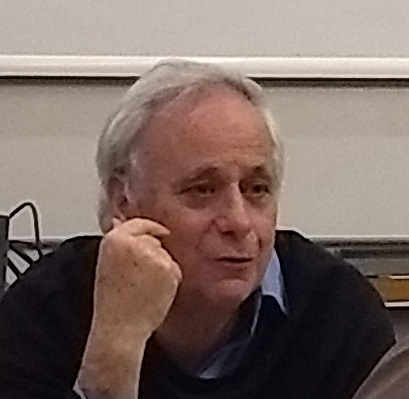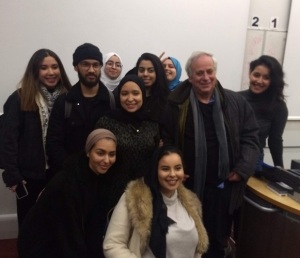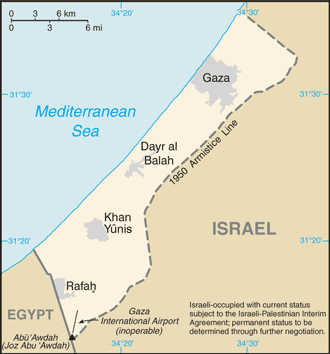 This talk at Queen Mary University in London interested me for two reasons.
This talk at Queen Mary University in London interested me for two reasons.
I learned about Israel’s ethnic cleansing of the Palestinians and the history of the Nakba from this man when I read his book “The Ethnic Cleansing of Palestine” and I really wanted to see Professor Pappe speak in person. (More about Ilan Pappe here.)
I also wanted to challenge Professor Pappe. Last year he suggested (recommended?) that we jettison the term “occupation” in favor of “colonisation”. (Check out his comments and my response here.) Although I understood his argument, I disagreed with him but never had the opportunity to tell him directly. So I imagined I might be able to tell him in London — face-to-face — because it was the subject of his talk.
The event was clearly billed as a “students only” gathering with a warning that student ID would be checked at the door, but that didn’t deter me. I found my way to Queen Mary University on the East Side of London and the students who were gathered outside encouraged me to attend.
Thankfully, the room monitor waved me in without any questions. I was clearly several decades older than the students around me.

The evening’s talk was not what was billed in the title for the event. Professor Pappe’s presentation focused on Settler Colonisation as it challenges basic Zionist ideology. He did not argue, as he has in the past, that the term “colonisation” should replace “occupation.” I had no desire to challenge him on that point, especially when the students had so many good questions to ask him. It felt as though I would be usurping their time with Pappe if I had raised my hand too.
Pappe explained the difference between “classical colonisation” and “settler colonisation” where the settlers are looking for a place to redefine themselves, a national movement. The settler sees himself as indigenous, and sees the genuine indigenous people as a threat (a hurdle) to be overcome.
“The Palestinians are fighting an anti-colonialist war of liberation.”
He drew parallels to South Africa several times, and said the logic of dehumanization is firmly embedded in he Zionists’ DNA as well as Israel’s DNA. Otherwise, they couldn’t do what they’re doing to the Palestinians and live with themselves.
“The Bible is not an action plan for colonisation.”
Sitting in a university in London, Pappe noted that the Zionists probably wouldn’t have succeeded with their settler colonisation plans without the help of the British. That acknowledgement helped me appreciate that the U.S. isn’t the only culprit in this tragedy.
Shivers went down my spine when Pappe mentioned that the Zionists’ massacres of Palestinians in 1948 was probably much, much worse than what he wrote about in The Ethnic Cleansing of Palestine. We probably don’t know, and won’t know, the extent of the massacres until Israel opens up its archives to the public. The documents from 1948 would have become public this year but Netanyahu approved an extension of another 20 years before they will be declassified. (What are they hiding?)
Pappe said that the settler colonialists in Israel have perfected two models — the open prison (West Bank) which was astonishingly approved in the Oslo Accords, and the maximum security prison (Gaza) where collective punishment is the norm and the Israeli military is using its might to carry out massacres.

Academics around the world are collaborating on the issue of how to do decolonisation. Pappe supports the One Democratic State. He didn’t mention Jeff Halper, but I suspect Pappe must be collaborating in the same effort.
Pappe sounds optimistic for the future of Palestine, and believes the young Palestinians (both in Palestine and in the diaspora) will succeed, but it may not happen in his lifetime, he admitted.




Lora, thanks for this lucid description. I will meet you read more details of the arguments we’re trying to distinction between colonies and settlements. I present I see a distinction without much difference after the passage of time. Columnists become settlers and take on a new identification. I think that’s been true with the Spanish and Brazilian colonization in Central and South America as well as with the English and European colonization in North America. The explicit drive by Israel to erase Palestinians and Palestinian culture – without fear of sanction or prosecution – is no more lawful that other colonialist ventures in past centuries. Under current international law, the tools exist to curb Israeli aspirations but the political will is not there.
Reblogged this on circusbuoy.
Reblogged this on penelopap.